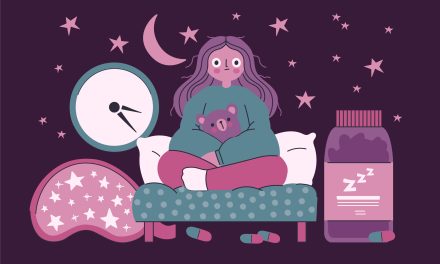No one enjoys sleepless nights, especially when caused by snoring. What’s this condition about?
Snoring is the nightly enemy that can quickly turn your home into a battleground. It doesn’t matter if you’re the blissfully unaware snorer or the frustrated listener furiously watching the clock. Snoring can wreak havoc on your sleep, health, and relationships.
Quick Read:
- Your sleeping position has a lot to do with snoring. Find a comfortable position that works best.
- Snoring could be genetic, so this is a good one to blame on the parents!
- Unfortunately, snoring can cause strife in your personal relationships. So, take the time to explore ways to alleviate snoring.
Why does snoring happen?
First, let’s understand that almost everyone will or has snored at some point. Snoring is caused by air that’s struggling to move freely through the throat or nasal passages. This results in “vibrations” that create the sound we know as snoring.
Most people will snore occasionally, usually when particularly exhausted. The problem is chronic snoring.
Common snoring culprits
- Nasal congestion from colds or allergies
- Weight gain (causes the airways to narrow)
- Alcohol (relaxes the throat muscles and makes snoring worse)
- Sleep position (especially lying on your back)

The serious downsides of snoring
Unfortunately, snoring isn’t just about disturbing your sleep. It can signal more serious health concerns like obstructive sleep apnoea (OSA). This is a condition where your breathing temporarily stops during sleep. Watch for these red flags and get help sooner rather than later:
- Gasping or choking sounds during sleep
- Snoring most nights of the week
- Unexplained weight gain
- Daytime drowsiness and trouble concentrating
- Persistent nasal congestion or frequent colds
- High blood pressure or frequent nighttime trips to the bathroom
Pay special attention to obstructive sleep apnoea. Ask your partner if they notice any pauses in your breathing during the night, and make a note if you’re still constantly tired even after a full night of rest. Sleep apnoea can increase the risk of heart disease, stroke, and diabetes, making early detection critical.
Also worth noting is that the longer you experience sleep disturbances and poor sleep, the more your health suffers. So, it’s important not to ignore poor quality sleep and just assume that it will sort itself out.
Help at hand
- If you’re overweight, losing a few extra kilograms (in a healthy way) can help reduce snoring by relieving pressure on your airways.
- Do your best to cut back on alcohol. This is especially important in the evening, as alcohol relaxes throat muscles and can disrupt deep sleep.
- Adjust your position. Sleeping on your side can prevent your tongue and soft palate from collapsing into the back of your throat. A body pillow can help keep you in position.
- Elevate your head. Slightly propping up your bed or using a wedge pillow can reduce airway obstruction.
- Manage your allergies. Consistent use of allergy medications and reducing exposure to triggers can prevent nasal congestion.
- Ask a pharmacist for over-the-counter nasal strips or sprays to help open up your airways.
If lifestyle changes aren’t having any positive effect, please see a doctor. They may need to look into a custom-fitted oral appliances which can help reposition the jaw and keep airways open. This will make breathing easier during sleep.
For more severe cases of sleep apnoea, CPAP machines have helped many snorers. These machines provide continuous air pressure to maintain steady breathing throughout the night. In some extreme situations, surgical procedures may be necessary to remove obstructions or correct underlying structural issues.
Images: Freepik





















